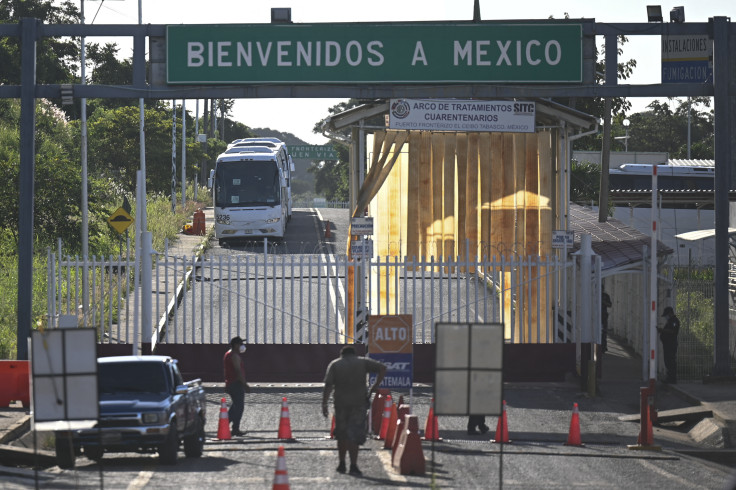How Mexico's 'El Carrusel' Helped U.S. Border Crossings Drop To 4-Year Low
The program buses roughly 10,000 migrants each month back to the border with Guatemala, where many simply turn around and head north again

Even though apprehensions at the southern border rose slightly in August, monthly border crossings are still about 80% lower compared to last December, when over 200,000 migrants were caught trying to enter the country. The numbers have even prompted authorities to consider changes to the policy, changes that would extend the duration and broaden the criteria required to lift the stringent asylum restrictions.
There's no one reason behind the decrease as Democrats tend to highlight the president's tougher asylum policies and Republicans point to Gov. Greg Abbott's Operation Lone Star, which is aimed at curbing unlawful migration. But an often overlooked factor that has had major consequences in the drop lies in the Mexican government's ramped-up enforcement efforts, particularly in the country's southern border, as the Washington Post reports.
In cities like Villahermosa, Mexico, near the Guatemalan border, migrants intercepted at highway checkpoints or removed from buses and trains are sent back south under what officials refer to as "El Carrusel" or "The Merry-Go-Round." Villahermosa's only migrant shelter, known as Amparito, is hosting twice as many migrants as a year ago.
"The tactic isn't totally new" explains The Washington Post, "but is being employed more aggressively than ever before. Since the start of this year, the Mexican government has bused around 10,000 migrants a month to the south, roughly double the figure last year, according to official data obtained by the migrant activist Gretchen Kuhner. Thousands more captured migrants are loaded onto planes or minibusses for the trip."
Mexico's enhanced enforcement began after a December 2023 visit by U.S. Secretary of State Antony Blinken, who urged Mexican President Andrés Manuel López Obrador to step up border control measures. In response, Mexican authorities have significantly increased highway checkpoints and searches of trains and buses. In the first half of 2024, Mexico logged 712,226 apprehensions — nearly triple the number in the same period last year.
However, after the Mexican Supreme Court ruled that migrants could be detained for only 36 hours and Mexico saw that it couldn't afford to deport that many people, "El Carrusel" went into full effect, as authorities dramatically scaled up a program to send them to cities near the Guatemalan border. Authorities have also tightened access to humanitarian visas and authorized officials to lean on railway operators to keep migrants from hopping freight trains.
However, many analysts say the merry-go-round is subjecting vulnerable people to horrific conditions, including kidnapping and robbery by criminal groups. "An infrastructure with 60, 90, 100 beds isn't remotely enough for the number of people who come," said Karina Vidal, director of Amparito shelter.
Another measure that Mexican and U.S. authorities hope will decrease the number of border crossings even further was the recent announcement that the CBP One App, the primary method for migrants to request asylum appointments since the Biden administration's policy changes in June 2023, is now available for non-Mexicans in southern states like Tabasco and Chiapas.
© Latin Times. All rights reserved. Do not reproduce without permission.




















